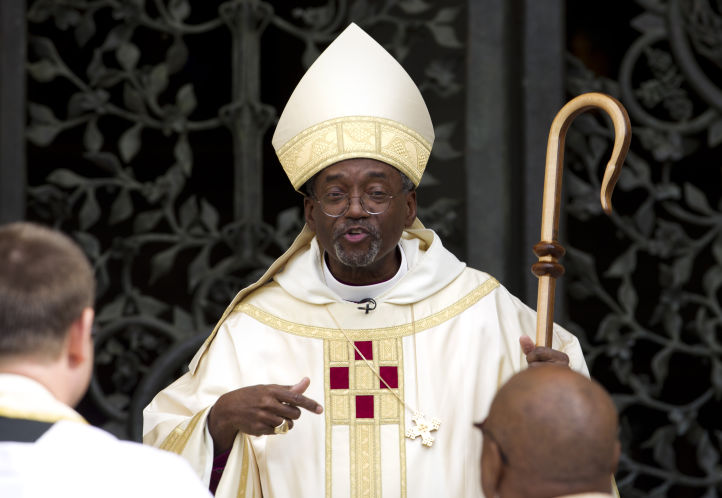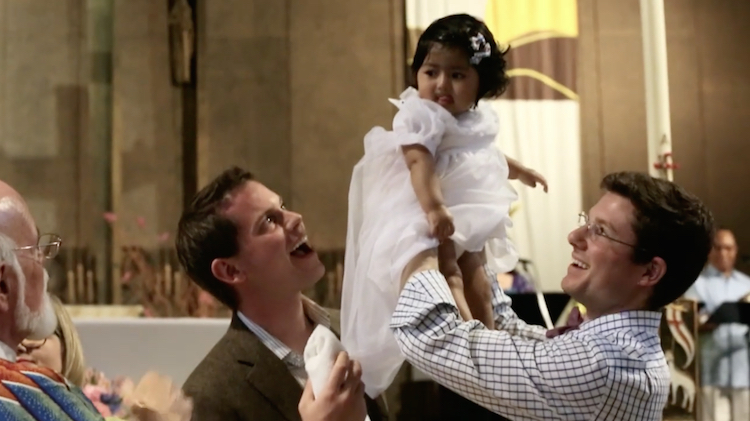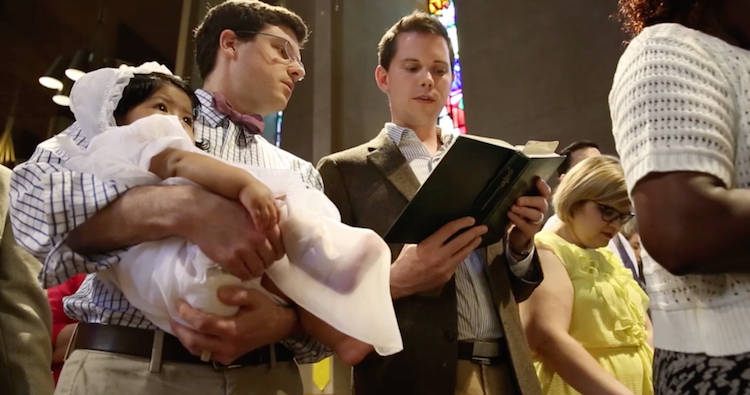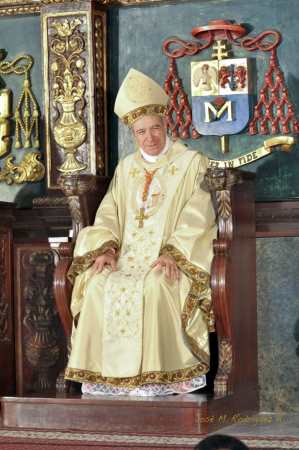By Mark S. King
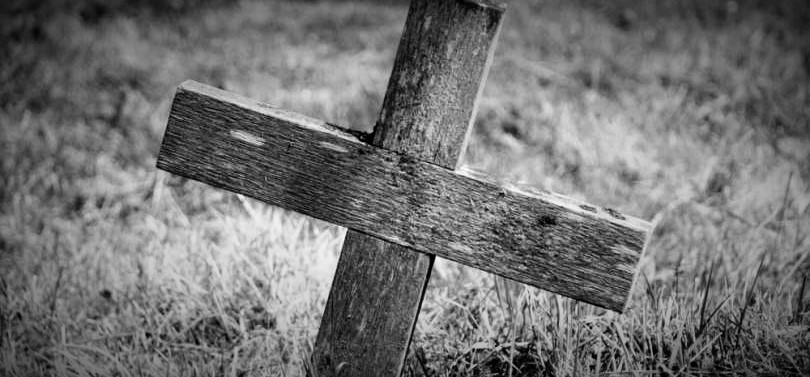
When he conducted the funerals, Tom Bonderenko tells me, he always wore his priestly garments and white stole. Even when no one showed up for the graveside service.
“It was important to show dignity and respect,” Tom says. He taps the coffee cup in his lap nervously. “I’m sorry,” he says. He clears his throat but it doesn’t keep his eyes from welling up. “No one has asked me about this in a really long time.”
We are sitting in his office at Moveable Feast, the Baltimore meal delivery agency for those with life-threatening illnesses, where Tom has served as director for the last eight years. His office is spacious and cheerful, but this conversation is a difficult one. He had discreetly closed his office door behind me when I arrived.
When Moveable Feast was founded in 1989 to deliver meals to home-bound AIDS patients, Tom was engaged in a different, more literal ministry to the disenfranchised. He was a priest staffing a homeless shelter for Catholic Charities of Baltimore. It was there he met someone with AIDS for the first time.
“A young man came to the door of the emergency shelter, sometime in 1987,” he says. “He was covered in black marks. Lesions, you know. Everywhere. He said he needed to clean up before his first doctor appointment the next day.”
Tom had grown up in New York City, and as a gay man he had known people who died very suddenly, as far back as the early 1980’s. But he had never stood face to face with someone so ill with the dreaded disease.
I couldn’t help but ask Tom how he felt, meeting that person.
 Tom stares out his office window, and his eyes are so beautiful, romantically blue, framed with creases of worry. The eyes of a priest. He turns back to me with an answer. “Here was a young man who was going to find out from a doctor the next day that he had AIDS,” he manages. He starts tapping his coffee cup again, and he bows his head reverently. “And he was about to be told that he was going to die.”
Tom stares out his office window, and his eyes are so beautiful, romantically blue, framed with creases of worry. The eyes of a priest. He turns back to me with an answer. “Here was a young man who was going to find out from a doctor the next day that he had AIDS,” he manages. He starts tapping his coffee cup again, and he bows his head reverently. “And he was about to be told that he was going to die.”
Tom never saw the young man again.
People with AIDS became more common at the shelter before long. Tom got to know the regulars, and they began to ask him to perform their funeral services.
“They just wanted to know they would be buried,” he says quietly. “They didn’t want or need anything religious. Most of them were estranged from their families, drug abuse, that sort of thing. I think they were embarrassed to reach out to relatives. Sometimes, when they died we would find a member of the family to come, but usually it was just me and the departed at the gravesite.”
The burials were performed at unmarked graves in a lonely section of Baltimore Cemetery. The caskets were as charity required, simple wooden boxes, and they always contained a body. The funeral home would not cremate someone who died from AIDS because they were afraid of poisoning the air.
“I would always conduct the service out loud,” says Tom, now sharing the sacred details. “I would speak about the departed, and say what I knew of them, about where they were from. And then I would ask if anyone present had been harmed by the departed…”
I imagined Tom, in his vestments and alone in a forgotten graveyard, asking intimate questions out loud to the grass and the trees and the disinterested silence. “I would say that if the departed had harmed anyone,” he goes on, “for that person to please forgive them.” Tom’s voice falters. “And then I would ask the departed to forgive, too. I would tell them, ‘you’re on the other side now. Let it go.’”
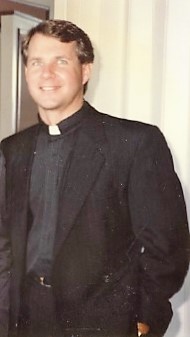 Tom’s office becomes very still. I feel as if I’m holding my breath.
Tom’s office becomes very still. I feel as if I’m holding my breath.
“I think they just didn’t want to be alone,” Tom says, and now he looks at me without regard for his tears. “We don’t do this alone.”
Because of you, I think to myself. They weren’t alone because of you, Tom.
“I’m so sorry,” he says, again, wiping his face. “I haven’t talked about this in so long.” He considers the faraway scene he has conjured, his graveside questions to no one, and then adds, “It was the most important, meaningful thing I have ever done.”
I wonder aloud if the experience bolstered his religious faith or challenged it instead. He looks surprised by the question. “Well,” he answers after a moment, “I believe it strengthened my faith. Yes.” I want very much to believe him.
Tom left Catholic Charities, and the priesthood, not long after he conducted the last of his burials for the homeless. A decade later he joined Moveable Feast and embraced its mission to provide sustenance for people in need, people like those to whom he once ministered.
Tom’s fellow staff members know little about his life a generation ago. Most of them aren’t aware of the aching memories beneath the calm surface of their sensitive and capable boss. They may not fully understand why Tom leaves the office once a month to distribute food personally to homebound clients.
But they will tell you that when Tom Bonderenko returns from those deliveries, he always has tears in his eyes.
Mark
Complete Article HERE!

